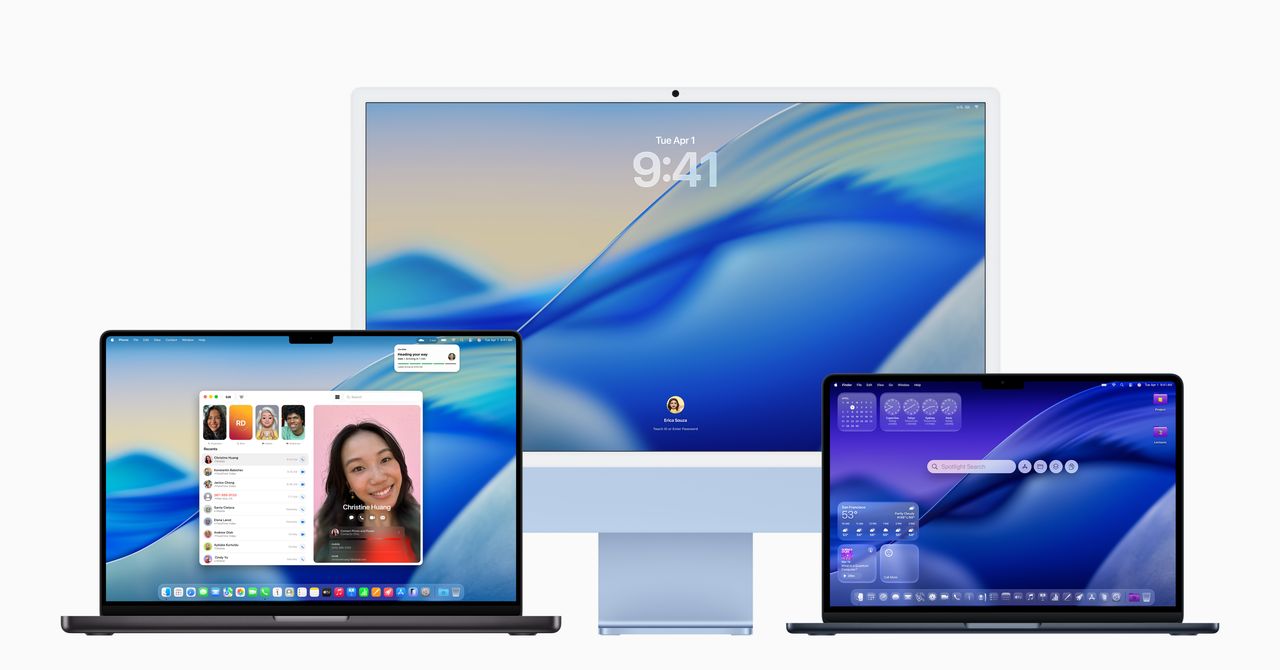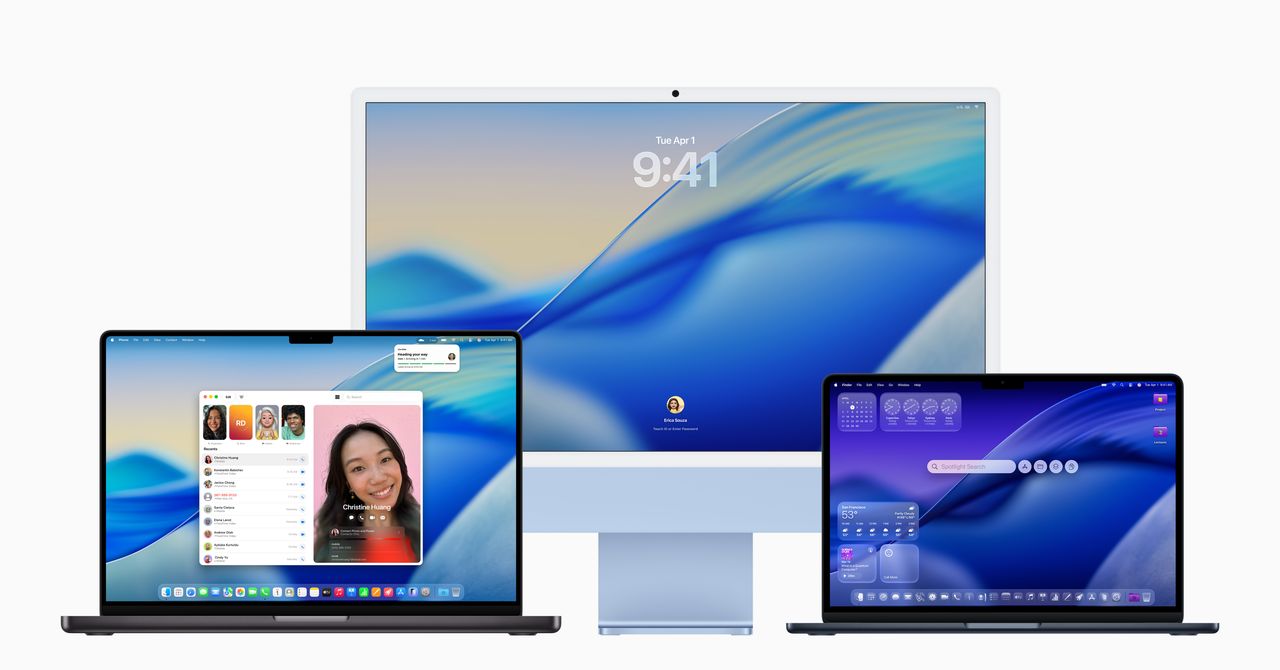Apple Silicon Dominance: The Final Chapter For Intel Macs?

Welcome to your ultimate source for breaking news, trending updates, and in-depth stories from around the world. Whether it's politics, technology, entertainment, sports, or lifestyle, we bring you real-time updates that keep you informed and ahead of the curve.
Our team works tirelessly to ensure you never miss a moment. From the latest developments in global events to the most talked-about topics on social media, our news platform is designed to deliver accurate and timely information, all in one place.
Stay in the know and join thousands of readers who trust us for reliable, up-to-date content. Explore our expertly curated articles and dive deeper into the stories that matter to you. Visit Best Website now and be part of the conversation. Don't miss out on the headlines that shape our world!
Table of Contents
Apple Silicon Dominance: The Final Chapter for Intel Macs?
The tech world is abuzz. Apple's transition to its own Apple silicon chips, a monumental shift away from Intel processors, is nearing completion. But does this mark the definitive end of Intel-powered Macs? The answer, while seemingly yes, is more nuanced than a simple binary response. This article dives deep into Apple's silicon success, analyzing its impact on the Mac ecosystem and exploring the future of Intel in the Apple landscape.
The Unprecedented Rise of Apple Silicon
Apple's move to its own custom-designed chips, starting with the M1 in late 2020, was initially met with cautious optimism. However, the performance leap was undeniable. The M1, M1 Pro, M1 Max, M1 Ultra, and now the M2 and M2 Pro chips have consistently outperformed Intel processors in comparable Mac models, offering superior battery life, improved graphics capabilities, and a more unified system architecture. This performance advantage has translated directly into a compelling user experience.
Key Advantages of Apple Silicon:
- Unmatched Performance: Benchmarks consistently show Apple silicon surpassing Intel processors in both single-core and multi-core performance, particularly in demanding tasks like video editing and 3D rendering.
- Superior Energy Efficiency: Apple silicon chips deliver significantly longer battery life, a critical factor for mobile Macs like the MacBook Air and MacBook Pro.
- Seamless Integration: The tight integration between Apple silicon and macOS offers unparalleled system optimization, leading to a smoother and more responsive experience.
- Enhanced Security: Apple silicon's architecture includes built-in security features that enhance the overall security of the Mac platform.
The Diminishing Role of Intel Macs
With each new Apple silicon chip release, the appeal of Intel-based Macs diminishes. Apple has systematically phased out Intel processors from its product lineup, with only a handful of older models still available. This strategic move suggests a clear intention to completely transition away from Intel. While some users may still cling to Intel Macs due to specific software compatibility issues or existing investments, the writing is on the wall.
Are There Still Reasons to Choose Intel?
While the tide is clearly turning, a few niche scenarios might still favor Intel Macs:
- Legacy Software Compatibility: Some professional applications may not yet be fully optimized for Apple silicon, requiring users to stick with Intel-based machines. However, this is becoming increasingly rare as developers adapt.
- Upgradability: Intel Macs historically allowed for greater hardware upgradability. Apple silicon Macs, while incredibly powerful, generally offer less room for user-driven component upgrades.
- Cost: In some instances, used Intel Macs might present a more budget-friendly option, although the performance gap is significant.
The Future: A Silicon-Only Ecosystem?
The overwhelming success of Apple silicon strongly suggests a future where Intel Macs are a relic of the past. Apple's commitment to its in-house chip development is evident, and future innovations promise even greater performance gains. This shift not only benefits Apple but also elevates the entire Mac user experience.
Conclusion: The End of an Era?
While the complete disappearance of Intel Macs might not happen overnight, the dominance of Apple Silicon is undeniable. The performance advantages, energy efficiency, and seamless integration make Apple silicon the clear winner. The final chapter for Intel Macs is likely being written, marking a significant turning point in Apple's history and the future of computing. Are you ready to embrace the Apple Silicon revolution?

Thank you for visiting our website, your trusted source for the latest updates and in-depth coverage on Apple Silicon Dominance: The Final Chapter For Intel Macs?. We're committed to keeping you informed with timely and accurate information to meet your curiosity and needs.
If you have any questions, suggestions, or feedback, we'd love to hear from you. Your insights are valuable to us and help us improve to serve you better. Feel free to reach out through our contact page.
Don't forget to bookmark our website and check back regularly for the latest headlines and trending topics. See you next time, and thank you for being part of our growing community!
Featured Posts
-
 Escape The Scottish Weather Vaduz Offers Abundant Sunshine
Jun 10, 2025
Escape The Scottish Weather Vaduz Offers Abundant Sunshine
Jun 10, 2025 -
 Turnstile Announces Us Tour A Venue By Venue Breakdown
Jun 10, 2025
Turnstile Announces Us Tour A Venue By Venue Breakdown
Jun 10, 2025 -
 Scotland Vs Liechtenstein International Friendly Preview Live Stream And Stats
Jun 10, 2025
Scotland Vs Liechtenstein International Friendly Preview Live Stream And Stats
Jun 10, 2025 -
 Daniel Rigby And Bel Powley Join Harry Potter Hbo Series As The Dursleys
Jun 10, 2025
Daniel Rigby And Bel Powley Join Harry Potter Hbo Series As The Dursleys
Jun 10, 2025 -
 Post Intel Mac Era Implications For Performance And Future Apple Products
Jun 10, 2025
Post Intel Mac Era Implications For Performance And Future Apple Products
Jun 10, 2025
